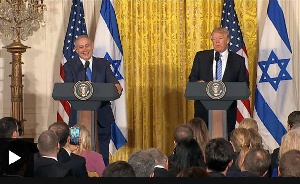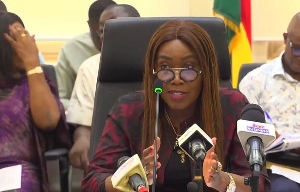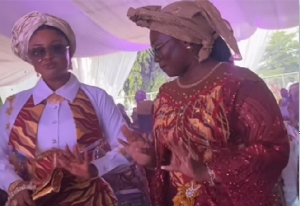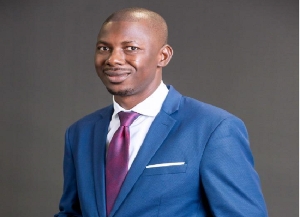- Home - News
- TWI News | TV
- Polls
- Year In Review
- News Archive
- Crime & Punishment
- Politics
- Regional
- Editorial
- Health
- Ghanaians Abroad
- Tabloid
- Africa
- Religion
- Election 2020
- Coronavirus
- News Videos | TV
- Photo Archives
- News Headlines
- Press Release
General News of Wednesday, 15 February 2017
Source: bbc.com
Trump relaxes US policy on Middle East two-state solution
US President Donald Trump has dropped decades of US policy that the Israeli-Palestinian conflict should be resolved by a two-state solution.
At a news conference with Israeli PM Benjamin Netanyahu, Mr Trump promised to deliver a "great" peace deal, but said both sides must compromise. The Israelis and Palestinians have had no substantive peace talks since 2014.
In the conference, Mr Trump also asked his visitor to "hold off" on settlement building for "a little bit".
Israel has approved thousands of new homes in West Bank and East Jerusalem settlements since Mr Trump took office last month.
Embassy issue
The Israeli government is hoping for better relations with the White House after eight years of friction with the former Obama administration. At Wednesday's press conference, neither leader committed explicitly to back a future independent Palestine, a longstanding bedrock of US policy.
Grey line
What is the two-state solution?
A "two-state solution" to the decades-old conflict between Israelis and Palestinians is the declared goal of their leaders and the international community.
It is the shorthand for a final settlement that would see the creation of an independent state of Palestine within pre-1967 ceasefire lines in the West Bank, Gaza Strip and East Jerusalem, living peacefully alongside Israel.
The UN, the Arab League, the European Union, Russia and, until now, the US routinely restate their commitment to the concept.
Reconsidering the two-state solution
Grey line "So I'm looking at two states and one state," said Mr Trump. "And I like the one that both parties like. I'm very happy with the one that both parties like.
"I can live with either one. I thought for a while that two states looked like it may be the easier of the two.
"To be honest, if Bibi [Mr Netanyahu] and the Palestinians, if Israel and the Palestinians are happy - I'm happy with the one they like the best." He said it would ultimately be up to the parties themselves to reach a peace agreement.
Mr Trump was also asked about his election promise to move the US embassy from Tel Aviv to Jerusalem, which could have serious implications for any peace negotiations.
"As far as the embassy moving to Jerusalem, I'd love to see that happen," Mr Trump said.
"And we're looking at it very, very strongly. We're looking at it with a great care, a great care, believe me. And we'll see what happens." When he was asked about a two-state solution, Mr Netanyahu said he wanted to focus on "substance" and not "labels".
"There are two prerequisites for peace," said the Israeli prime minister. "First the Palestinians must recognise the Jewish state.
"Second, in any peace agreement, Israel must retain the overriding security control over the entire area west of the Jordan River."
Palestinians' warning
It was the two leaders' first face-to-face meeting since Mr Trump's victory in the 2016 presidential election.
A retreat from US backing for a two-state solution would upend decades of American - and international - policy embraced by Republican and Democratic administrations.
On Tuesday, a senior White House official signalled a potential policy shift by saying peace did not necessarily have to entail Palestinian statehood, and that Mr Trump would not try to "dictate" a solution.
The report alarmed Palestinians, who urged the White House not to abandon the goal of an independent Palestinian nation.
"If the Trump administration rejects this policy it would be destroying the chances for peace and undermining American interests, standing and credibility abroad," Hanan Ashrawi, a senior member of the Palestine Liberation Organisation, said in response to the US official's remarks.
"Accommodating the most extreme and irresponsible elements in Israel and in the White House is no way to make responsible foreign policy."
More than 600,000 Jews live in about 140 settlements built since Israel's 1967 occupation of the West Bank and East Jerusalem - land Palestinians claim for a future state.
The settlements are considered illegal under international law, though Israel disputes this.
Grey line
Travelling with Netanyahu - Gidi Kleiman, BBC Middle East producer A relatively large group of journalists followed Mr Netanyahu from Israel to cover his first meeting with President Trump. A lot was at stake, especially after the eight years of the strained relations with the Obama administration.
Ahead of the meeting, the general sentiment among them concerned the lack of clarity on how the meeting between the two leaders would go. Whether they will get along and mostly what will be said on the Israeli-Palestinian conflict and the two-state solution, a formula which has been a long-term tenet of US and Israeli policy.
Waiting in the East Room for the press conference, journalists were filing reports, posting on social media and also getting their selfies taken with White House insignias. So did Israeli officials.
The two leaders entered the room, and as very warm words were exchanged, it looked like the turning of a page in the relationship between the two countries.
But perhaps it was also another turning point, departing from the two-state solution formula, a term they avoided using. Their confidence gave the impression that some sort of regional deal is perhaps already being explored with moderate Arab countries.
The journalists were left guessing how this will play out or, as Trump put it, "we will see".











